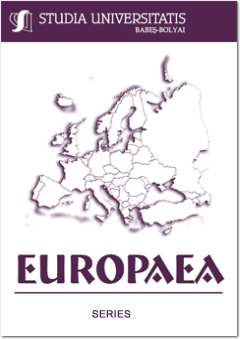THE EU “ENGAGEMENT WITHOUT RECOGNITION” POLICY IN ITS EASTERN NEIGHBORHOOD DE FACTO STATES. THE CASE OF ABKHAZIA AND SOUTH OSSETIA
THE EU “ENGAGEMENT WITHOUT RECOGNITION” POLICY IN ITS EASTERN NEIGHBORHOOD DE FACTO STATES. THE CASE OF ABKHAZIA AND SOUTH OSSETIA
Author(s): Alexandra M. SabouSubject(s): Politics / Political Sciences
Published by: Studia Universitatis Babes-Bolyai
Keywords: Engagement without recognition; de facto states; Abkhazia; South Ossetia; European Eastern Partnership.
Summary/Abstract: This article aims to analyze the limits and the opportunities encountered in the implementation of the EU Non-Recognition and Engagement Policy with Abkhazia and South Ossetia (NREP), launched in December 2009. Part of the EaP toolkit to strengthen EU’s relations with its new Eastern Neighborhood, the NREP contributed to numerous legislative and discursive changes towards Abkhazia and South Ossetia in the Georgian politics. However, because the NREP was almost merged with the legislation and approach of Georgia towards its two breakaway republics, Sukhum/i and Tskhinvali mistrusted any engagement actions coming from Brussels and Tbilisi. Their reactions following the adoption of the visa waiver for Georgia are an indication of the depth casted between belligerents that the NREP could not fill in. Therefore, we advocate that a clearer and much more coherent EU agenda towards its Eastern de facto states is very much needed in order to decrease the level of humanitarian isolation that affects the people living in such areas and to increase the EU leverage on conflict transformation and resolution in the EaP framework.
Journal: Studia Universitatis Babes-Bolyai - Studia Europaea
- Issue Year: 62/2017
- Issue No: 1
- Page Range: 127-139
- Page Count: 13
- Language: English

